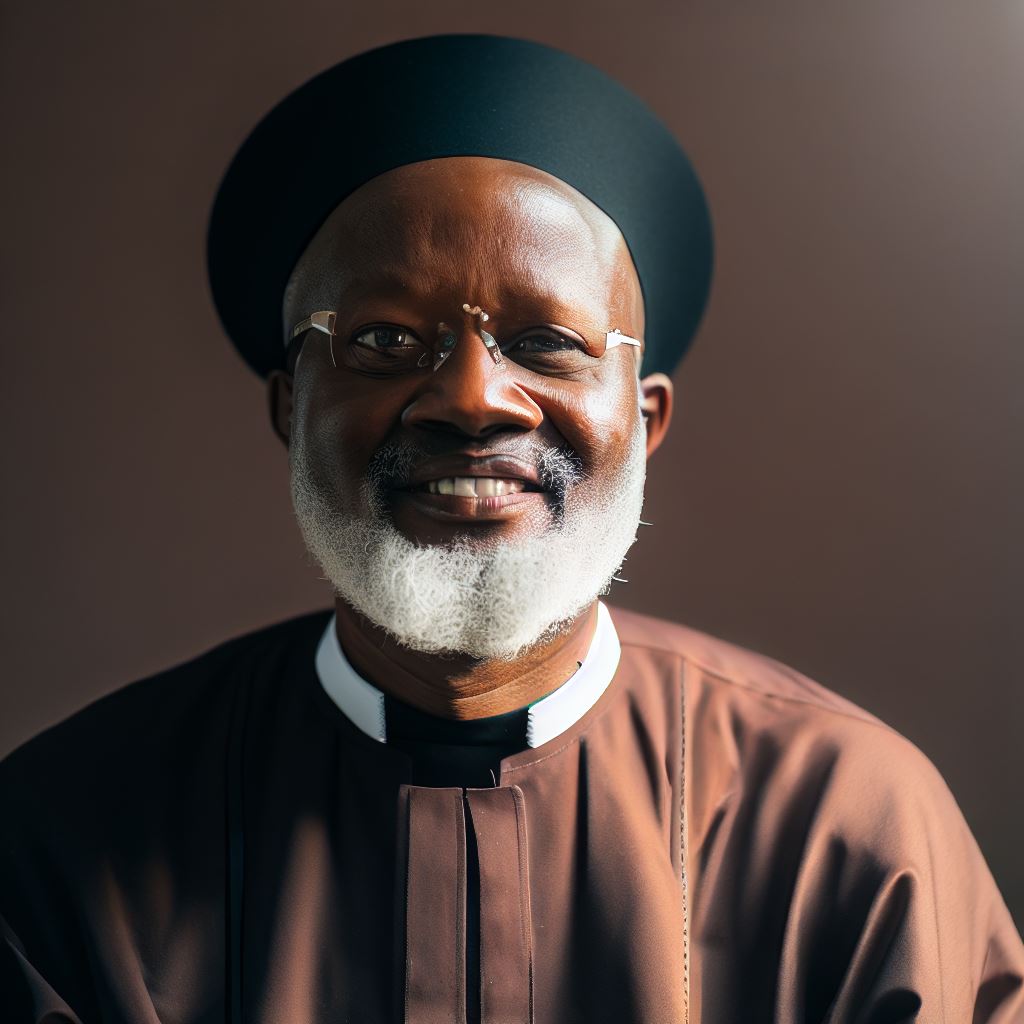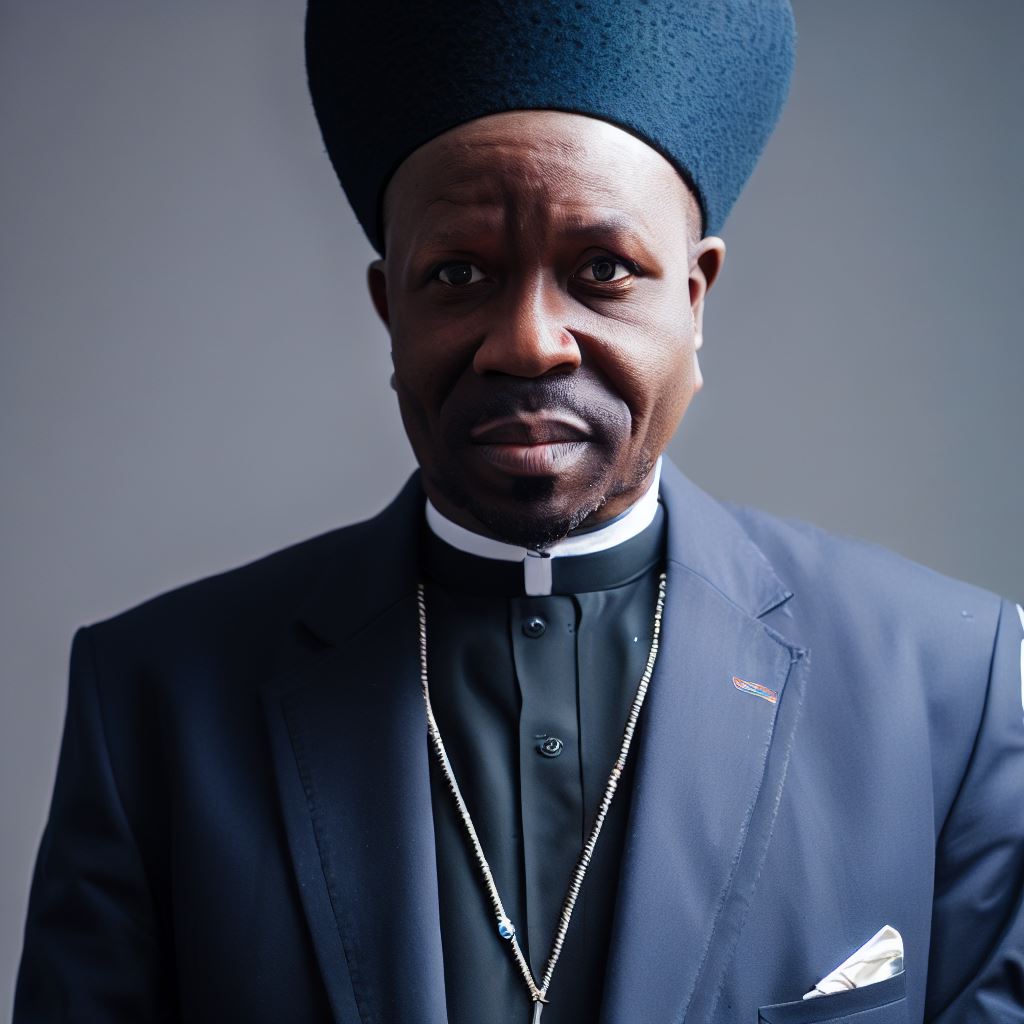Introduction
Nigeria Clergy Ethics and Integrity: Ethics and integrity are fundamental traits that shape the behavior and character of Nigeria’s clergy.
As spiritual leaders, they carry the responsibility of guiding and inspiring their congregations towards righteous paths.
The significance of ethics and integrity cannot be overstated in the context of the clergy, as their actions directly impact the faith and trust that people place in them.
In Nigeria, where religion plays a prominent role in society, the need for ethical conduct within the clergy becomes even more critical.
The clergy’s moral code serves as a beacon of hope for the people, and their integrity ensures that they are credible representatives of their faith.
The main points of this blog post will delve into the importance of ethics and integrity in the clergy. Firstly, we will discuss how ethics provide a moral compass, shaping their decisions and actions.
Secondly, we will explore the role of integrity in building trust, both within the religious community and society at large.
Lastly, we will examine the consequences of a lack of ethics and integrity within the clergy and its impact on their credibility and the faith of their followers.
By emphasizing the significance of ethics and integrity in Nigeria’s clergy, this blog post aims to foster a deeper understanding and appreciation for these core values.
In doing so, we hope to inspire clergy members to uphold high moral standards and serve as effective spiritual leaders for the betterment of their congregations and society as a whole.
Definition and Importance of Ethics
Ethics and its relevance to clergy members
Ethics are moral principles that govern behavior, and they are crucial for clergy members who serve as moral guides.
The role of ethics in guiding clergy’s behavior and decision-making
- Ethics play a vital role in shaping the conduct and decision-making of clergy members.
- They provide a framework for moral reasoning and help define what is right and wrong.
- Ethical guidelines guide clergy members in their interactions with congregants and the community.
- They help clergy navigate challenging situations with integrity and ensure fair treatment for all.
The importance of ethical behavior in preserving trust in religious leaders
- Ethical behavior is essential for religious leaders as it maintains trust and credibility in their roles.
- When clergy exhibit ethical behavior, it strengthens the bond between them and their congregants.
- Acting with integrity fosters respect and enhances the influence and impact of clergy members.
- Ethics contribute to the credibility of religious institutions and ensure a positive reputation within the community.
- Ethical conduct also safeguards the reputation of the clergy, protecting them from scandals or controversies.
- Moreover, ethical behavior promotes harmony and unity within religious communities.
- By setting an example of moral living, clergy inspire their congregants to follow a virtuous path.
- They encourage individuals to engage in self-reflection, leading to personal growth and spiritual development.
- Ethical behavior also promotes social cohesion and contributes to a healthier society.
- When clergy members prioritize ethics, it results in a community that is compassionate, just, and empathetic.
- This, in turn, positively impacts societal norms and values.
- It establishes a strong foundation for social justice initiatives and fosters a culture of inclusivity.
- Overall, ethical behavior in clergy members has far-reaching effects that extend beyond religious contexts.
- It contributes to the betterment of individuals, communities, and society as a whole.
Definition and Significance of Integrity
Integrity and its significance in Nigeria’s clergy
- Integrity is the adherence to moral and ethical principles, honesty, and consistency.
- In Nigeria’s clergy, integrity holds immense significance as it defines their character and trustworthiness.
- It is the foundation upon which their credibility and effectiveness are built.
- The clergy’s commitment to integrity sets them apart as moral guides and role models for their followers.
How integrity is fundamental in establishing credibility and respect
- Integrity is the key factor that establishes credibility and garners respect from the congregation.
- When clergy members adhere to a high standard of integrity, they earn trust and confidence.
- Their actions align with their words, creating a solid foundation for their leadership.
- Integrity ensures transparency, accountability, and authenticity, which are essential for maintaining credibility.
- By consistently demonstrating integrity, clergy members become influential and respected voices in society.
How integrity can positively impact the relationship between clergy and their followers
- A clergy’s integrity fosters a strong bond of trust between them and their followers.
- Transparent actions and adherence to ethical principles build believers’ confidence in their spiritual leaders.
- Integrity helps clergy members connect on a deeper level, empowering them to address personal and moral concerns effectively.
- When faced with ethical dilemmas, clergy members with strong integrity uphold their values and guide their followers accordingly.
- This enhances the congregation’s sense of security, loyalty, and faith in their spiritual leaders.
Integrity is the cornerstone of Nigeria’s clergy, representing their commitment to moral values and ethical principles.
By staying true to these principles, clergy members establish credibility and respect among their followers.
The significance of integrity lies in its ability to foster trust, accountability, and transparency, which are essential for effective leadership.
Integrity can be defined as the adherence to moral and ethical principles, honesty, and consistency. In the context of Nigeria’s clergy, integrity holds immense significance.
It shapes their character and defines their trustworthiness. By embodying integrity, clergy members become living examples of the principles they preach, establishing themselves as moral guides and role models.
Credibility and respect are built on the foundation of integrity. When clergy members maintain a high standard of integrity, they earn the trust and confidence of their congregation.
Followers look up to spiritual leaders who align their actions with their words, recognizing the authenticity of their leadership.
This alignment ensures transparency, accountability, and authenticity, which are vital for maintaining credibility.
Integrity positively impacts the relationship between clergy and their followers in various ways. By consistently demonstrating integrity, clergy members build a strong bond of trust with their congregation.
Read: The Impact of Religion: Nigeria’s Clergy and Society
Challenges to Ethics and Integrity in Nigeria’s Clergy
Various Challenges Faced by the Clergy in Upholding Ethics and Integrity
- Financial temptations that can lead to embezzlement or misappropriation of church funds.
- Pressure to maintain a certain image, leading to the temptation of hypocrisy.
- Influence from corrupt individuals who may try to exploit the clergy for personal gain.
- The temptations of power and authority, leading to abuse of their positions.
- Nepotism and favoritism, where clergymen may prioritize family and friends over merit and fairness.
- Lack of proper training and education on ethics and integrity.
- External societal pressures that may conflict with the clergy’s values and principles.
- Political involvement that can compromise their impartiality and integrity.
- Challenges in maintaining confidentiality, especially when faced with sensitive information.
- Difficulty in balancing personal beliefs and the expectations of their congregation.
Instances of Ethical Misconduct and Lack of Integrity by Clergy Members
- Sexual misconduct, such as cases of adultery or abuse within the clergy.
- Exploitation of vulnerable individuals, such as using their influence to manipulate or deceive them.
- Engaging in fraudulent activities, such as misrepresenting miracles or selling fake religious artifacts.
- Involvement in criminal activities, such as money laundering or participating in illegal organizations.
- Plagiarism and intellectual dishonesty, where clergy members may present others’ work as their own.
- Engaging in bribery or accepting bribes to manipulate decisions or gain personal advantages.
- Discrimination and prejudice, where clergy members may treat certain groups unfairly based on personal biases.
- Lack of transparency in financial matters, hiding income or financial mismanagement.
- Spreading hate speech or inciting violence through their religious teachings.
- Ignoring or covering up cases of abuse within their institutions, prioritizing reputation over justice.
Negative Consequences of Compromised Ethics and Integrity in the Clergy
- Loss of trust and credibility from the congregation, leading to a decline in religious participation.
- Deterioration of the moral fabric of society, as clergy members are role models for their followers.
- Damage to the reputation and reputation of the religious institution as a whole.
- Increase in skepticism and criticism towards the religious community.
- Loss of support and patronage, affecting the financial stability of the religious institution.
- Inability to effectively address social issues and advocate for justice.
- Loss of moral authority, diminishing the clergy’s ability to lead and guide their followers.
- Erosion of the values and principles that form the foundation of the religious community.
- Strained relationships with other religious groups or institutions due to negative perceptions.
- Risk of legal consequences, such as lawsuits or government intervention, for ethical violations.
Steps Taken to Uphold Ethics and Integrity
Examples of organizations or initiatives that promote ethics and integrity within Nigeria’s clergy
- The Christian Association of Nigeria (CAN) has established a code of conduct that all member churches must adhere to.
- The Nigerian Supreme Council for Islamic Affairs (NSCIA) encourages imams and mosques to promote ethical behavior through sermons and community outreach programs.
- The Nigerian Baptist Convention has implemented a system of regular trainings and workshops for pastors to address ethical concerns.
The role of religious institutions in setting standards and enforcing ethical behavior
Religious institutions play a crucial role in upholding Nigeria Clergy Ethics and Integrity. They act as moral compasses, setting standards through religious texts and teachings.
They also have disciplinary mechanisms in place to address ethical violations committed by clergy members.
The importance of transparency, accountability, and self-regulation in maintaining ethics and integrity:
- Transparency: It is vital for religious institutions to be transparent about their financial activities and decision-making processes. This ensures trust and prevents corruption.
- Accountability: Clergy members must be held accountable for their actions. This can be done through internal investigations, disciplinary actions, and reporting mechanisms.
- Self-regulation: Religious institutions must take responsibility for implementing and enforcing ethical standards.
They should have internal structures and committees dedicated to overseeing and evaluating clergy conduct.
Several organizations and initiatives in Nigeria are actively working towards promoting ethics and integrity within the clergy.
Religious institutions play a significant role in setting standards and enforcing ethical behavior. Transparency, accountability, and self-regulation are crucial in maintaining ethics and integrity among the clergy.
By upholding these core values, Nigeria Clergy Ethics and Integrity can continue to be a beacon of morality and righteousness.
Read: Training for Clergy in Nigeria: A Comprehensive Review

Benefits of a Clergy with Strong Ethics and Integrity
Positive impact of clergy members with strong ethics and integrity on society
- Clergy members with strong ethics and integrity play a crucial role in shaping society.
- Their actions and behavior have a positive ripple effect on individuals and communities.
- By upholding moral values, clergy members inspire others to uphold similar standards.
- They become beacons of hope and provide guidance to those in need.
- Their integrity builds trust and credibility within the community.
- Clergy members with strong ethics can effectively address social issues and bring about positive change.
- They serve as moral compasses, promoting fairness, justice, and compassion.
- Clergy with integrity create a culture of honesty, transparency, and accountability.
- They encourage individuals to strive for moral excellence and to be good citizens.
- The positive impact of clergy members with strong ethics extends beyond their immediate congregation.
Trusted clergy as role models and influencers for positive change
- Clergy members with strong ethics and integrity are seen as role models by their followers.
- Their actions and words hold immense influence and can shape people’s beliefs and values.
- Trusted clergy can inspire their followers to follow a virtuous path and make positive choices.
- They provide guidance on important life decisions, promoting ethical behavior and integrity.
- Clergy members act as mentors, offering support and encouragement to individuals seeking personal growth.
- They can steer people away from destructive behaviors and towards a more fulfilling and ethical life.
- Trusted clergy can use their influence to advocate for social justice and human rights.
- They can mobilize their congregations and communities to engage in acts of kindness and service.
- Clergy with strong ethics and integrity can help counteract negative influences in society.
- They remind individuals of their moral responsibilities and urge them to contribute to a better world.
Clergy with high moral standards fostering a more cohesive and ethical society
- A clergy with high moral standards leads by example and fosters a sense of unity.
- They promote values such as love, compassion, forgiveness, and respect for all individuals.
- By emphasizing ethical principles, they contribute to a more harmonious and cohesive society.
- Clergy members with high moral standards discourage division, prejudice, and discrimination.
- They encourage dialogue and understanding among people of different backgrounds and beliefs.
- Their teachings promote inclusivity and respect for diversity.
- Clergy members with high moral standards actively work towards bridging societal divides.
- They facilitate interfaith dialogue and promote religious tolerance.
- A clergy with high moral standards cultivates a culture of empathy and cooperation.
- Through their teachings, they encourage individuals to prioritize the greater good and act with integrity.
A clergy with strong ethics and integrity brings numerous benefits to society. Their positive impact influences individuals, communities, and beyond.
Trusted Nigeria Clergy Ethics and Integrity serve as role models and influencers for positive change, promoting ethical behavior and inspiring others.
They foster unity, justice, and compassion, contributing to a more cohesive and ethical society.
Read: How to Join the Clergy in Nigeria: A Step-by-Step Guide
Conclusion
In this blog post, we have discussed the main points regarding Nigeria Clergy Ethics and Integrity.
It is crucial to emphasize the importance of ethics and integrity as core values in Nigeria’s clergy.
As a conclusion, let us all take a firm stand and prioritize ethics and integrity in both the clergy and society.
Main Points:
- Ethics and integrity are fundamental values for Nigeria’s clergy.
- They are essential for maintaining trust, credibility, and moral leadership.
- Clergy must lead by example in their personal and public lives.
- Upholding these values strengthens religious institutions and fosters societal well-being.
Importance of Ethics and Integrity:
- Ethics and integrity define the character of clergy members.
- They inspire confidence among congregants and the wider society.
- These values guide clergy in ethical decision-making and responsible leadership.
Call to Action:
- Clergy: Embrace ethics and integrity as guiding principles, fostering a moral and spiritual revival.
- Society: Support and hold clergy accountable for upholding these values, ensuring a virtuous and harmonious nation.
Finally, ethics and integrity are the bedrock of Nigeria’s clergy, driving positive change in both religious and societal realms.




